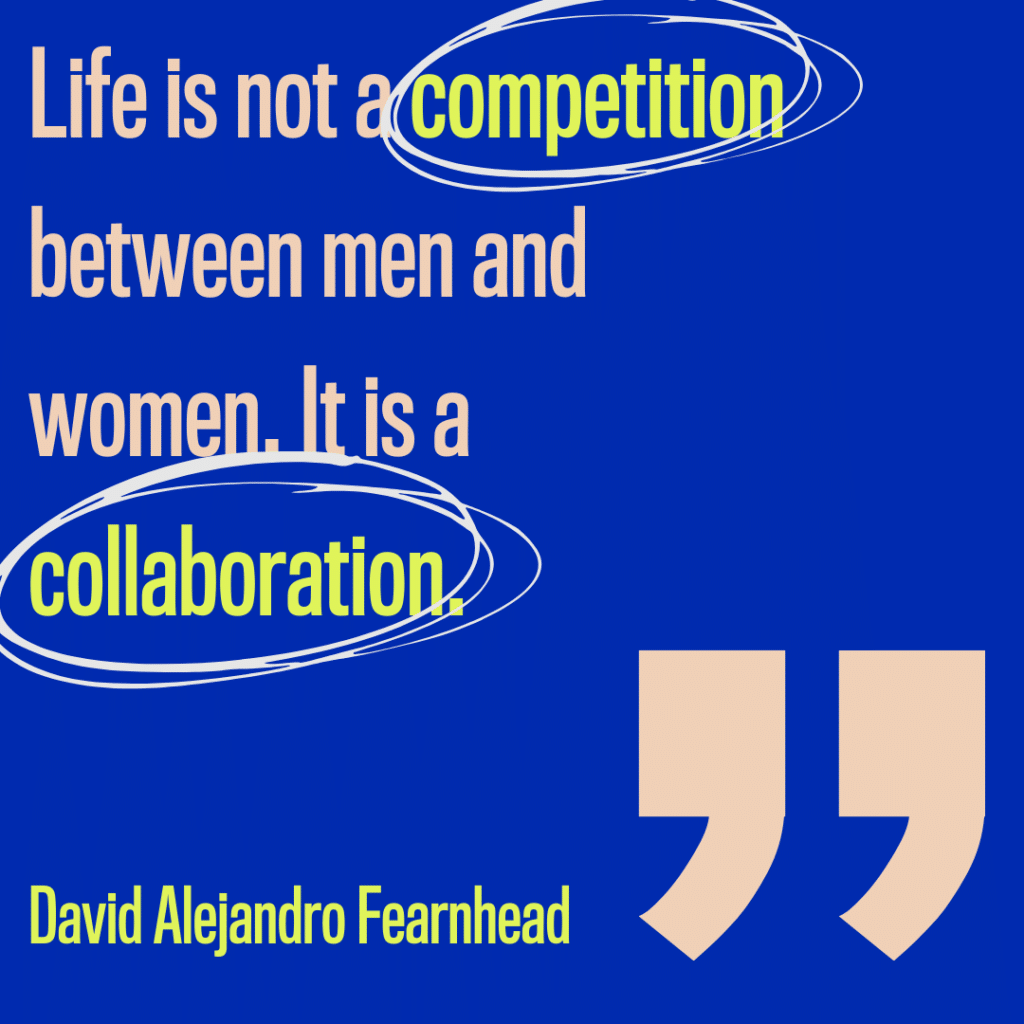Dual Career Couples: can it actually work?

This week, Patrycja shares her personal experience and tips on how to build successful and healthy families as dual career couples.
By Patrycja Riera, CEO, Inclusionem
Today more women graduate from universities than men.
The percentage of male and female in entry and middle management jobs looks pretty similar, but that number changes drastically when reaching the top of the organisation.
The lack of women in senior and top management positions is discussed on the organizational level, but only recently, we started talking about it from a family and relationship point of view.
What does it actually take to build a dual career relationship that works.

Work as a primary source of identity and ambition. There is plenty of evidence in research showing that when both individuals thrive and contribute to work and home life, there is more financial and relationship satisfaction, as well as lower than average chance of divorce.
However, this does not mean that dual career couples don’t face any problems..
On the opposite, there is plenty to choose from.
The questions of can I make a risky career change, whose job to relocate for, who stays at home with a sick child… those are real questions that couples face and often wonder, how can they give each other, family and work their full commitments?
Is this even possible?
There is no simple answer to this and for each couple it might look differently. Academic research in this area shows that dual career couples overcome these challenges by addressing the deeper levels rather than touching the surface.
What does it mean? It means reflecting and speaking about the deeper psychological and social challenges which we all face. Those include personal hopes, failures, struggles for power and control, assumptions, expectations about each other’s roles and lives.
However, we don’t often talk about it in the corporate world.
This is a topic very close to my heart. Often when people ask me about my career, “how do I do it all?”, I can’t stress enough the importance of my husband and that I am not doing it all, we are..
Doing it all together

With Ernesto’s high-profile role, me running a company and doing my doctorate, both traveling, life gets hectic and we often need to sit down to make sure we are on the same page, still believe in our why and where, even though often we don’t know how.
Here are some tips and habits I have personally learned with my husband through trials, conversations, ups and downs.
- MAKE CHOICES DELIBERATELY AND TOGETHER
When making choices about career decisions, make them openly and jointly. This means it is not about one or the other, but rather being on the same side as it helps not to leave issues that can create more harm in the future.
Being on the same page and understanding what future looks like is the first step to make it work.
We might not know all the details but understanding our passions and dreams for the future helps to create clarity of what each one of us wants and how this will play out in family and work life.
Very early in our relationship (on our first date), we talked about our desire to work and live around the world. Together we make decisions where we go, for whose job and how we would want the next step to look like.
- DEEP CONVERSATIONS
As an executive coach I learned about the power of contracting in every conversation and business meeting. But what do I mean by contracting in a relationship?
A dual career strategic approach is not about signing a paper, but requires to have in-depth discussions about values, boundaries and fears.
When couples are aligned on all three, it gives them freedom and direction on how they will walk together. They might not know how… but at least they know why and where.
Sharing and creating values helps understand what matters most, to assess if the path we are on is right. That’s because when our choices are aligned with our values, it’s easier to prioritize and we feel satisfied and on the right path.
Boundaries,on the other hand, help to lower uncertainty and make it easier to take decisions. That’s helpful especially if careers take couples to different parts of the world.
What helps is to identify boundaries for place, time and presence. What locations can you see yourself working and living in now or when you have kids, which one you know you will never enjoy and want to avoid? How much do we work, is it a job where one needs to put more hours than normally? Those are valid and important boundaries to discuss.
Fears are key in order to notice if a dual career couple is entering dangerous space. Often fears guide our behavior, which can also be preemptive.
There can be many fears about career, family, relationships. However, when verbally communicated to the one we trust, it can create greater mutual support and sensitivity and can help to navigate together even if some of those fears are real.
“We suffer more from imagination than from reality”.
Seneca
- LEARN TO SAY NO
As your careers progress and you build family, there are moments in everybody’s life when the number of invitations to work or private functions increases.
It might be a client dinner, speaking at an event, become somebodies’ coach or mentor, attend a birthday party or dinner. Even though these might often be rewarding, they also require your energy and time.
To create a healthy work life balance, you do need to learn to say “no” and know when to do it is not always easy.
I personally ask myself a question – does it add value to my work or private life? I often ask my husband if that’s something important to him as well.
I found the below three questions useful to understand if I should say “yes” or “no”.
- Do I add a unique value to this?
- Will I add value to myself or my family by joining?
- What would be the impact on my spouse and family?
- RUN THE LONG RACE
Often, we see two individuals competing for temporary trade-offs rather than cooperating for longer and mutually beneficial advantages.
It is normal that when making important decisions, couples end up negotiating and look at the current realities, rather than considering the long-haul and what’s ahead.
This means that often decisions are based on current circumstances like income, location, or babies. Many parents decide, for one, to stay at home because of the childcare cost.
However, we don’t take into account the cost and impact of our choices on future career or earning potential.
Make decisions thinking about the marathon you are running rather than a short sprint and remember, it’s both of you running and not only one.
Even though sometimes one runs faster than the other one during a season, it can later on change, and let both of you run in the pace you want to. And even if one of you stops, create opportunities for both personal and professional growth, even if a small one, it does count.
- FLEXIBLE MINDSET
Innovation is so important to create competitive advantage for business. How often though do we think of innovation at home! One size does not fit all families, you need to find what fits you, your spouse and kids.
Create moments when you brainstorm and talk about your work/life model. Are you happy as it is? Are you happy with your roles, location? What about your dreams and can you work towards them as it is, or does something need to change?
Be flexible and don’t be scared to change the model to whatever fits you as a family in the time you are in.
- PLAY TO EACH OTHER’S STRENGTHS AND INTERESTS
When both parents are working, home chores and family responsibilities face many struggles. This is where being strategic about who does what, especially as family grows, is important.
Dividing responsibilities according to strengths and interests is lifesaving! Make a list of chores and divide it by categorizing “enjoy”, “don’t mind” or “loathe”.
By doing so you will avoid tension and become more effective and present. And if you can, outscore the things you can to create more time and space for both of you.
SOURCES
https://hbr.org/2018/02/being-a-two-career-couple-requires-a-long-term-plan
https://hbr.org/2019/09/power-couples?referral=03759&cm_vc=rr_item_page.bottom
